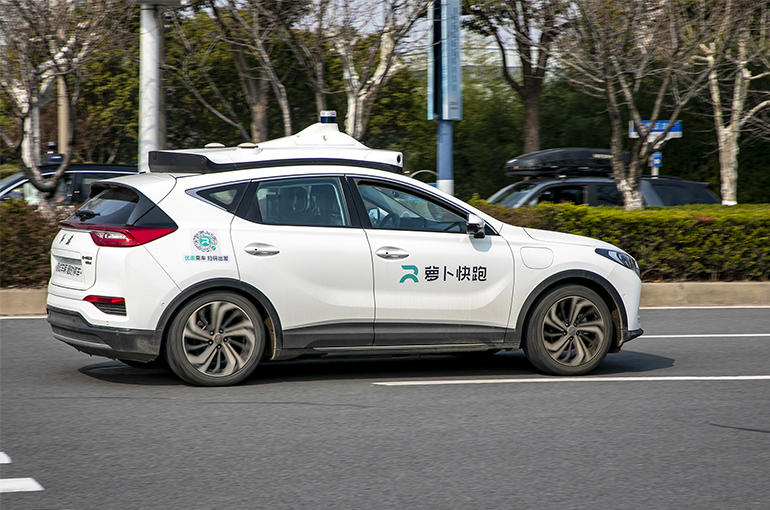 Baidu RoboTaxi Bumps Into Jaywalker
Baidu RoboTaxi Bumps Into Jaywalker(Yicai) July 9 -- A robotaxi operated by Apollo Go, the self-driving arm of Chinese tech giant Baidu, recently had a minor collision with a pedestrian who ran across the road when the traffic lights turned green in the city of Wuhan.
A clip of a person lying on the ground in front of an Apollo Go vehicle with traffic police at the scene was uploaded to social media by a netizen.
The accident occurred when the traffic lights turned green and a pedestrian suddenly ran across the road, a Baidu representative told Yicai today. The unmanned vehicle had started to move forward and bumped into the jaywalker.
"The individual involved was examined at hospital and no obvious injuries were found. He remains in hospital under observation for purpose of precaution." the person said.
The incident reveals that self-driving systems still have limitations when it comes to handling unexpected situations and unconventional behavior, an industry expert told Yicai.
Although autonomous driving technology continues to improve, the driving skills of unmanned cars still face challenges in complex situations, especially when pedestrians, bicycles and vehicles do not comply with traffic rules, the expert said.
This incident highlights the need for self-driving technology developers to prepare a full set of accident coping mechanisms and emergency plans, given that the technology is not yet fully mature, he added.
Wuhan is one of Apollo Go’s key cities in the rollout of its robotaxi services. In September 2022, the Beijing-based company was given the green light to drive on public roads without a safety officer on board and to provide local taxi services. By March, it had achieved 24-hour operations.
Over 55 percent of orders for Apollo Go taxis in Wuhan were for fully self-driving vehicles in the first quarter, and this increased to 70 percent in April, Baidu founder Robin Li said earlier. The proportion is expected to reach 100 percent in the coming months.
Baidu expects its Apollo Go services in Wuhan to break even by 2025, the firm said previously. This is partly because the cost of its sixth-generation self-driving autos is now 60 percent less than its fifth-generation ones at CNY200,000 (USD27,500) a vehicle.
Editors: Tang Shihua, Kim Taylor